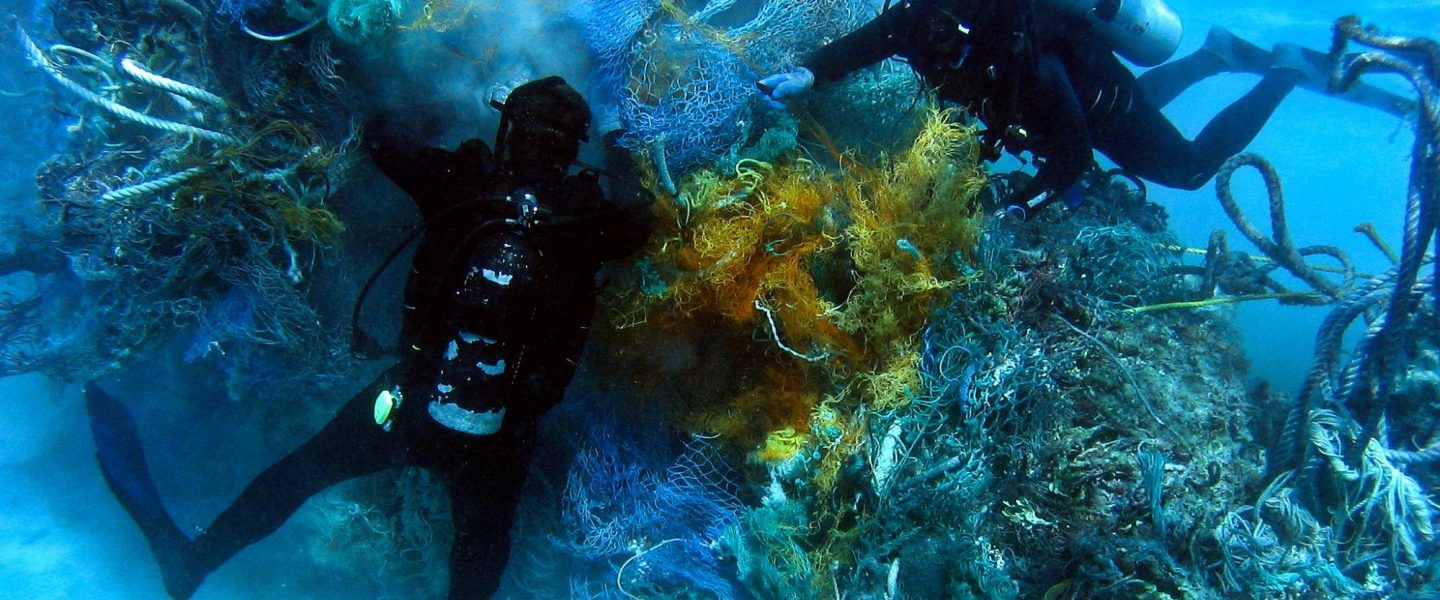Pacific Garbage Patch Providing a Deep Ocean Home for Coastal Species
|
Listen To This Story
|
PICKS are stories from many sources, selected by our editors or recommended by our readers because they are important, surprising, troubling, enlightening, inspiring, or amusing. They appear on our site and in our daily newsletter. Please send suggested articles, videos, podcasts, etc. to picks@whowhatwhy.org.
Pacific Garbage Patch Providing a Deep Ocean Home for Coastal Species (Maria)
The author writes, “A survey of plastic waste picked up in the North Pacific Subtropical Gyre — aka the Giant Pacific Garbage Patch — has revealed that the garbage is providing a home to species that would otherwise not be found in the deep ocean. Over two-thirds of the trash examined plays host to coastal marine species, many of which are clearly reproducing in what would otherwise be a foreign habitat. The findings suggest that, as far as coastal species are concerned, there was nothing inhospitable about the open ocean other than the lack of something solid to latch on to.”
Trump Made Up to $160 Million From Foreign Countries as President (Sean)
From CREW: “Donald Trump made up to $160 million from international business dealings while he was serving as president of the United States, according to an analysis of his tax returns by CREW. Throughout his time in office, President Trump, his family and his Republican allies repeatedly assured the public that his refusal to divest from his businesses wouldn’t lead to any conflicts of interest. Americans were promised that Trump would donate his salary, which he did, until maybe he didn’t — all while siphoning millions from taxpayers that more than offset his presidential pay. When it came to foreign conflicts of interest, Trump and his company pledged to pause foreign business. They did not.”
Is Punishing Innocent People Unconstitutional? (Dana)
From Slate: “Last December, Christopher Dunn asked the United States Supreme Court to order his release from prison or at least grant him a new trial. He is serving a life sentence in Missouri for a crime he did not commit, and he is hoping the court will agree to take up his case this spring. Dunn contends that the U.S. Constitution forbids punishing innocent people and is asking the justices to declare that it is unconstitutional for a state to keep an innocent man in prison. A court in Missouri now agrees that he is not guilty. But Dunn is caught up in a nightmarish legal thicket. It is time for the Supreme Court to end his nightmare and say that this country will not tolerate punishing the innocent.”
EU Warns Against Unilateral Steps After Poland, Hungary Ban Ukrainian Grain (Sean)
The author writes, “Unilateral action on trade by European Union member states is unacceptable, the bloc’s executive said on Sunday, after Poland and Hungary announced bans on grain and other food imports from Ukraine to protect their local agricultural sectors. After Russia’s invasion blocked some Black Sea ports, large quantities of Ukrainian grain, which is cheaper than that produced in the European Union, ended up staying in Central European states due to logistical bottlenecks, hitting prices and sales for local farmers.”
UN, Others Cite New Displacement From Ethiopia’s Tigray (Michaela)
The author writes, “Forces from Ethiopia’s Amhara region have displaced tens of thousands of ethnic Tigrayans from disputed territory in the north of the country in recent weeks despite a peace deal agreed late last year, according to aid workers and internal agency documents seen by the AP. The Mai Tsebri area in northwestern Tigray is close to the regional border with Amhara. It changed hands several times during the war, which erupted in 2020 and ended with a ceasefire in November. The Amhara people claim the area as their own.”
What Kind of Mind Does ChatGPT Have? (Gerry)
From The New Yorker: “What kinds of new minds are being released into our world? The response to ChatGPT, and to the other chatbots that have followed in its wake, has often suggested that they are powerful, sophisticated, imaginative, and possibly even dangerous. But is that really true? If we treat these new artificial-intelligence tools as mysterious black boxes, it’s impossible to say. Only by taking the time to investigate how this technology actually works — from its high-level concepts down to its basic digital wiring — can we understand what we’re dealing with. We send messages into the electronic void, and receive surprising replies. But what, exactly, is writing back?”
Why Does American Multifamily Architecture Look So Banal? Here’s One Reason (Al)
From The Architect’s Newspaper: “In a recent article in The New York Times, Anna Kodé lamented the blandness of multifamily architecture in the U.S. and posited several theories for this disappointment. The root cause of the banality is quite simple. The answer is something that, once seen, cannot be unseen: stairs.”




